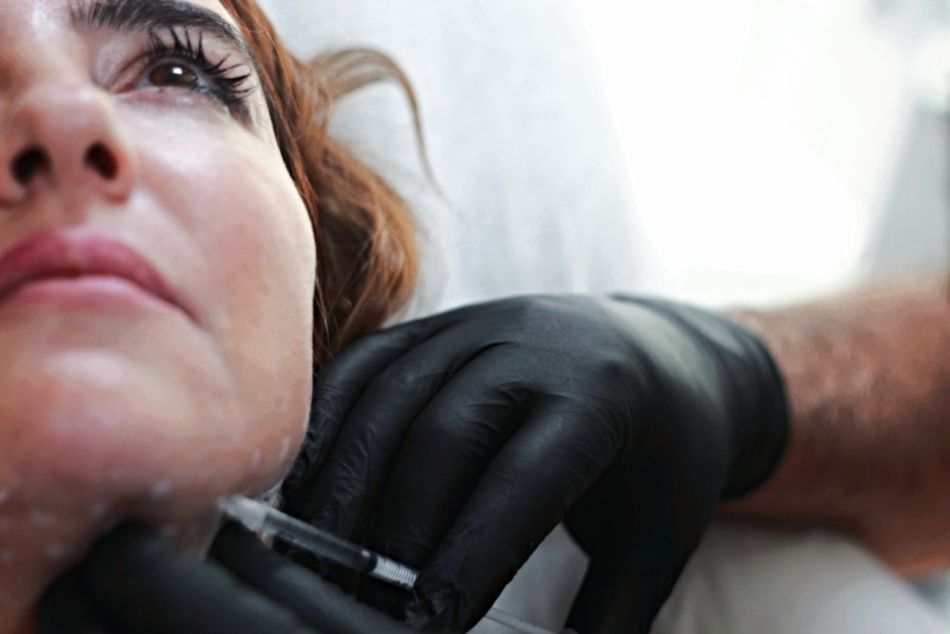Medical Spas - Are They Really Medical?
The HWNTeam | Cutting Edge

image by: Orhun Rüzgar ÖZ
Spas and clinics are reinventing themselves...clinics are becoming more spa like whereas spas are becoming more medical like...welcome to the medical spa, popular but at the same time controversial
A visit to the doctor is a scary occasion for many people. Hospitals and clinics are almost always painted in white to convey cleanliness and efficiency. Add to that the prospect of being subjected to diagnostic tests using machines and needles. Truly, medical facilities are the most unwelcoming of places.
On the other hand, spas are enjoyable, have become mainstream and are not just pastimes for the rich and famous. The average person can have access to a spa anytime, without being subjected to membership or member recommendation rules.
However, spas usually do not have anything to do with medical check ups and screenings although their services may be medical-based procedures such as hair removal or botox injections. And spas are more inclined towards complementary medicine such as yoga, Pilates, and aromatherapeutic massages.
But, things are changing. Driven by competition and the desire to maintain market share both spas and clinics are reinventing themselves. Spas are trying to gain 'medical' credibility in an era when consumers are more health savvy and demand more scientific-based health service whereas traditional medical clinics are trying to create a 'medical spa' atmosphere because the borderline between alternative and traditional medicine has gradually blurred in recent years as a more holistic approach to medicine has become popular.
As a result massages and acupuncture have become part of postsurgical therapy of breast cancer patients while those who practice yoga and Reike may also go for botox and liposuction.
Many diagnostic centers have coined their facilities' official name to include the term "wellness." Wellness, is a word associated by many with alternative medicine and spas, conjures up pictures of well-being and relaxation.
The Diagnostic & Wellness Center for Women of Pacific Medical Center (PacMed), the Diagnostic and Wellness Center at Harbor-UCLA and the Women's Diagnostic and Wellness Center of Coral Springs Medical Center in Florida are examples of this trend. Even the renowned Cleveland Clinic has its Florida Health and Wellness Center. One would seldom associate these names with mammography or calcium scans.
Spas on the other hand, have adopted the term "medical spas" or medispas" to emphasize the medical and health benefits of their services. In the same way, alternative medicine is trying to keep up with technology. Whereas traditional acupuncture uses manual stimulation, acupuncture centers use new technology for stimulation, from electrical impulses and lasers to moxibustion and heat.
Many clinics are redesigning their facilities to make them less sterile and more relaxing. PacMed's Diagnostic & Wellness Center for Women in Seattle describes its setting as "spa-like", with interior decor in warm, soothing colors and furniture and fixtures one wouldn't normally find in a normal clinic setting. "The soothing, warm hues of the decor and custom-made, heated robes are a few touches that aim to put anxious patients at ease," according to their October 2007 press release. However, despite the spa-like atmosphere, this unique wellness center has all the state-of-the-art medical and diagnostic equipment as well as top notch medical staff necessary to perform diagnostic tests.
"Our goal is to change the healthcare experience for the better and encourage people to take a proactive approach to wellness”, according to a PacMed Center spokesperson. The Women's Diagnostic & Wellness Center at Coral Springs Medical Center in Coral Springs Florida calls its setting "home-like" to do away with the impersonal atmosphere that is associated with many diagnostic centers.
Far and away the biggest change is specialization. We are all familar with clinics that offer diagnostics, screening and check ups for just about every health condition, never mind the ubiquitous weight loss and lap band clinics as well as walk in, industrial and cancer clinics. But there is a new kid on the block, so-called boutique diagnostic facilities including:
Wellness centers - Created to keep the 'healthy' population healthy, these centers usually feature the wellness or total body scans, a non-invasive CT test from the collarbone to the pelvis and covers the heart, lungs and abdomen. The specific areas scanned in the abdomen are the kidneys, liver, gall bladder, aorta, adrenal glands, lymph nodes, spleen and other certain pelvic organs. The aim is to find disease before it gets you!
But they may create more harm than good. The radiation exposure that occurs as well as the need for additional medical expenses to investigate abnormal scans, which may turn out to be a normal finding, have made wellness body scans quite controversial, to the point where some people believe they are totally unnecessary.1
Women's health centers - PacMed's Diagnostic & Wellness Center offers diagnostic services specifically for women's health. These tests, which are usually part of annual medical check ups, can include any of the following:
- Digital mammography which is especially helpful in screening patients with dense breast tissue.
- Diagnostic ultrasound which is useful as an adjunct for further evaluation of an abnormal mammogram.
- Breast Magnetic Resonance Imaging (MRI), again to check for breast cancer, especially in women who are at high risk.
- Biopsies to confirm suspicious-looking structures detected by the above imaging systems.
- DEXA bone scanning checks for bone health. As women age, they are at higher risk for developing osteopenia and osteoporosis.
- Therapeutic massages either as part of postsurgical rehabilitation programs or simply a relaxing massage to recover from the stress of the tests.
- The Women's Diagnostic & Wellness Center at Coral Springs Medical Center in Coral Springs, Florida offers similar services from breast cancer detection to bone densitometry test. In addition, it offers education and fitness programs which include:
- Lectures
- Fitness classes
- Support groups
- Nutrition
- Massage therapy
- Maternal classes
- Cholesterol & Diabetes Screenings
- Weight Management
- Healing Arts Classes
Cardiovascular health centers - The Diagnostic and Wellness Center at Harbor-UCLA specializes in cardiovascular health screening. The center uses state-of-art computer tomography (CT) scanning and imaging technology to perform the following "wellness scans":
- Heart Scan
- Lung Scan
- Body Scan
- Abdominal Aorta Scan
- Virtual Colonoscopy
- QCT Bone Density
- Carotid Artery
Sleep wellness facilities - The Winmar Diagnostics Sleep Wellness Center in Fargo, North Dakota is a 15-year-old privately owned clinic specialized in sleep diagnostics. It basically provides services to hospitals, clinics, and private practices to test for and diagnose sleep disturbances. Its facilities include a free-standing sleep center, a complete sleep laboratory, and state-of-the-art equipment and highly trained staff in the field of sleep medicine.
Dental facilities - Even, the dentists are getting into it. It's about time. If there is a medical procedure that scares many people it's the dental check up. The Austin Dental Spa offers general as well as cosmetic dentistry. The center utilizes "only the highest quality materials and the latest technology available in a world-class spa setting." By using a "combination of spa amenities and personalized care," makes a visit to the dentist a stress-free, fear-free experience.
OK, how are spas changing their image?
According to Gwen Mayes at Medscape Today, "Until a few years ago, day spas limited their "medical" procedures to an occasional light chemical peel, Botox injection by a visiting dermatologist, or a postsurgical medical massage by a licensed physical therapist. Today, instead of contracting with physicians in the community to stop by 1 or 2 days a week to offer updated laser treatments and advanced aesthetic procedures, physicians are expanding their outpatient facilities or partnering with existing day spas to create a medical spa. Both sides have found a more formal merger to be a lucrative and well-received union. According to the International SPA association (ISPA), the industry generated $234 million in revenues in 2003".
The newly opened Women's Health Center of the Bond Clinic in Winter Haven, Florida has combined the features of a diagnostic center and a day spa to form a real "medical spa", a wellness center which caters to the medical and cosmetic needs of the patients. The center considers itself as a "one-stop shop for women's health includes obstetrics and gynecology, women's diagnostic services and a medical spa". The Bond Clinic Women's Health Center offers the following:
- Complete gynecological services
- Personalized pre-natal care
- Cosmetic services by Bond Aesthetics, which offers cosmetic treatment services.
The spa includes a licensed massage therapist and facial specialist who offers a wide range of services from a relaxing hot stone massage to variety of facial treatments. The board-certified physicians perform cosmetic laser treatments for facial rejuvenation, hair removal, spider veins and broken capillaries, acne, Rosacea and age spot removal. Botox and other cosmetic injections for the treatment of facial lines and wrinkles are also available. The Women's Health Center at the Bond Clinic has achieved the ultimate hybridization of a cosmetic and a diagnostic center whose goal is "to give women a place they can go for both their medical and cosmetic needs in a relaxing, comforting and state-of-the-art atmosphere."
However, medical spas remain controversial.
Many facilities that call themselves medical spas or medical day spas only offer services similar to a normal day spa and in many of these centers, a medical doctor may be in attendance or may act as a consultant but no diagnostic and screening procedures are being offered.2
And there are issues as to who regulates medical spas. The good news is we can expect more facilities to follow the Bond Clinic's model resulting in the need to protect the interests of patient-consumers who can be confused by the names of the facilities as well as the wide range of services they have to offer.3
To this end, the Medical Spa Society was formed, a national non-profit organization that aims to look at the guidelines and standards of care of medical spas.4
The Bottom Line
Diagnostic centers and medical spas have both evolved and continue to reinvent themselves. There is no doubt that the medical industry is becoming more consumer oriented. Massages and acupuncture have become part of postsurgical therapy of breast cancer patients while those who practice yoga and Reike may also go for botox and liposuction.
But, a word of caution, that wellness scan may not be necessary. Also, don't get confused by the fancy names and always check with your health insurance about your scope of coverage.
Published March 1, 2009, updated June 04, 2012
References
- Pros and Cons of Total Body Scans, Make Health Connect, December 28, 2010
- Patient Safety Advisory on Medi-spas, The American Society for Aesthetic Plastic Surgery (ASAPS)
- Lack of regulation raises medical spa safety issues, NewarkAdvocate.com, May 7, 2012
- Cool L, Are Medical Spas Dangerous? Yahoo Health, February 16, 2012
Other Sources

Introducing Stitches!
Your Path to Meaningful Connections in the World of Health and Medicine
Connect, Collaborate, and Engage!
Coming Soon - Stitches, the innovative chat app from the creators of HWN. Join meaningful conversations on health and medical topics. Share text, images, and videos seamlessly. Connect directly within HWN's topic pages and articles.
















